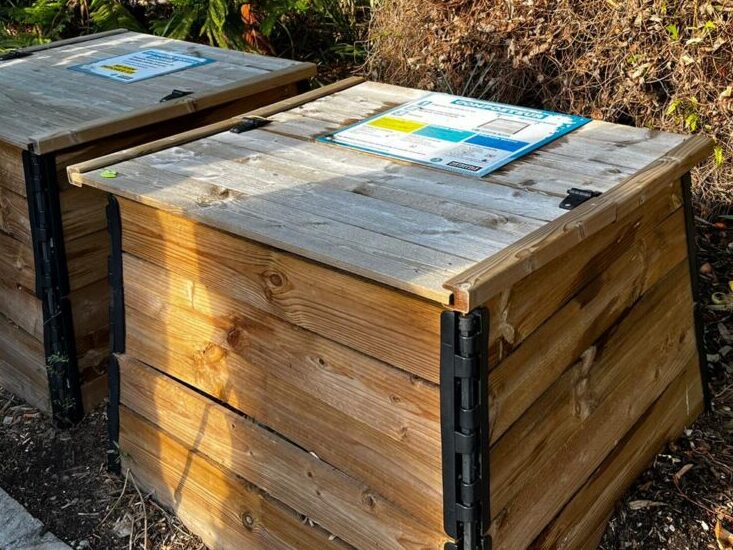The Nice Côte d’Azur Metropolis offers source sorting solutions for bio-waste to support residents in the habit changes that the AGEC law will bring from January 1, 2024.
“To encourage citizens to do it, we need to make it easier,” says Pierre-Paul Leonelli, deputy mayor of Nice, responsible for cleanliness, collection, and parks and gardens, this Tuesday, December 5, on the Promenade du Paillon.
From January 1, 2024, the French will have to change their waste sorting habits. The law on combating waste and promoting a circular economy (AGEC law) adopted by Parliament in 2020 will take effect.
According to the government, its purpose is to “limit waste and preserve natural resources, biodiversity, and the climate” by accelerating “the change in production and consumption models.”
All French people will have to sort their food waste and green waste
A third of the contents of French people’s bins consist of food waste, representing 83 kg of residual waste per person per year. It is from this observation that this aspect of the anti-waste law for a circular economy was conceived.
No more meal leftovers in the trash. Households will be required to sort their bio-waste. What exactly are we talking about? This includes all organic waste such as food waste like fruit and vegetable peels or food leftovers. Garden waste is also concerned, including dead leaves, weeds, and twigs.
All these organic wastes have one thing in common: they are biodegradable and thus recyclable through composting, which turns them into natural fertilizer.
The metropolis prioritizes composting
The Nice Côte d’Azur Metropolis has decided to offer more source sorting solutions for bio-waste to support its citizens through these habit changes. Thus, it bets on promoting composting by progressively setting up public composters.
These compost bins are installed in the parks and gardens of the city and are accessible to citizens. The objective is to familiarize them and encourage them to adopt composting. They can be found on this interactive map. Currently, Nice already has 207 composting sites. They have appeared gradually since July 2021. The metropolis also announces the deployment of collective composting in condominiums.
Owners of single-family homes can also equip themselves with an individual composter. It is not provided by the metropolis but is available for 17.50 euros. It is sufficient to make a request online via a form accessible on the metropolis’s website. More than 13,000 have already been distributed.
The metropolis is also focusing on green waste collection by setting up free access to recycling centers (under certain conditions). To further fight against waste, it also promises to engage with collective catering and school canteens to encourage the Anglo-Saxon system of the doggy bag.
Between 2010 and 2022, the Nice Côte d’Azur Metropolis reduced its household waste by 19%. Now, according to Pierre-Paul Léonelli, “the priority of the metropolis is composting.”


